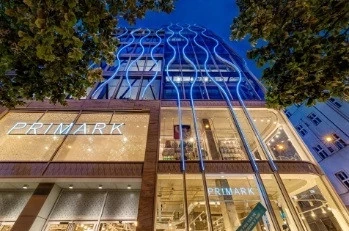Social media platforms for your Black Friday strategy
Is your social media strategy ready for Black Friday? Compare platforms with CX Network’s handy guide
Add bookmarkBlack Friday - and Cyber Monday - are coming. The global sales weekend after the US marks Thanksgiving, during which businesses can expect to see record transactions and customers grab once-in-a-year deals.
While it is true that online shopping in the UK is most popular with 25-34-year-olds, an impressive 94 percent of consumers made an online purchase between 2020-21. More specifically, 90 percent of those aged 45-54 and 16-24 bought something online, while 87 percent of the 35-44 age group, which sits between them, also bought something online between 2020-21. Regardless of whether this increased is due to the Covid-19 pandemic, the takeaway is clear: online shopping is more prevalent than ever.
Sellers should be aware of how they can wield social media to ensure a seamless purchasing journey. Doing this will maximise your brand’s profitability. Sortlist’s table on the effectiveness of selling on each social media platform is a helpful starting point for most brands.
| Instagram shop | Tik Tok shop | Pinterest shop | |
| Length of video ads | 2 minutes | 1 minute | 15 minutes |
| In-app purchase | Limited | Limited | Limited |
| Bidding strategy for ad space | Conversions, vale and landing page views | In-feed ads | Custom or automatic |
| Landing page in-app | No | In-feed ads | Yes |
RELATED CONTENT: Gen Z is changing omnichannel
– here are 4 platforms to keep your brand relevant
Leveraging social for ecommerce
Companies should be aware of a developing need to cater to these social media trends. According to the CX Network report How social media can boost omnichannel customer service, 88 percent of customers are “less likely to buy from companies that leave complaints on social media unanswered.” While only 59 percent of brands reply to user’s Tweets within 15 minutes.
People are increasingly relying on social media to shop, using Instagram shopping or channel-based messaging platforms to communicate with sellers. The necessity to reshape traditional buyer-company relationships is clear in light of a changing customer base, 64 percent of people would rather message than call a business.
Indeed, according to a 2018 YouGov poll, charting the trends in how people communicate with companies via Whatsapp, 54 percent of respondents used the messaging app for customer service purposes.
Online behaviour has a direct impact on brand’s success, which is reflected in the slew of recent success stories from the likes of Trengo. Trengo effectively groups together all social media platforms, offering businesses one omnichannel platform to access all their messages.
The builder’s merchant site Hubo was highlighted in a recent CX Network report entitled How SMEs are using Whatsapp to offer better customer service. According to the report, Hubo worked with Trengo to integrate Whatsapp into the site’s transactions during the pandemic. “I spoke to a Hubo owner who currently gets 60 percent of his revenue through Whatsapp” claims franchiser of the Hubo brand, Desiree van der Hoogen.
Similar brands are noticing this marked success. Kenko Tea founder, Sam Speller, admitted that trying to conduct business over email was resulting in data silos which could be eliminated by “having the customer journey within a single message chain.”
The demand for easy solutions and quick replies means your brand could benefit from adopting social media into your Black Friday sale strategy.





















